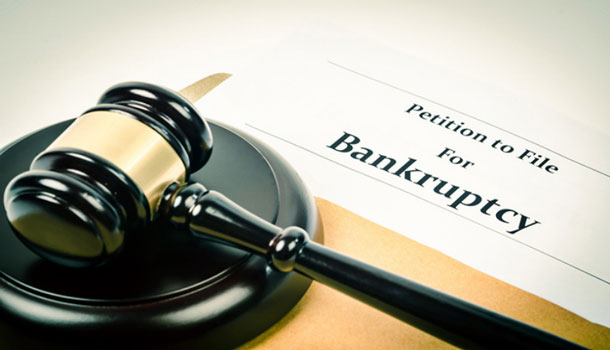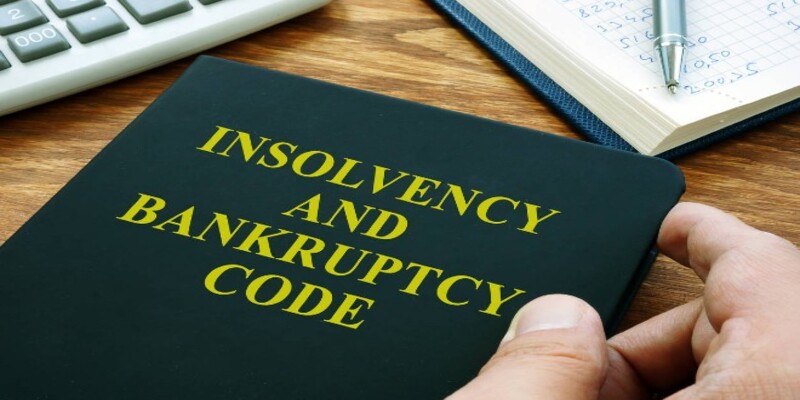Insolvency refers to the state of being unable, either personally or for a business, to satisfy one's or one's organization's financial commitments when they come due. This predicament might have been brought about by a number of factors, some of which include a loss of income, a rise in debt, or a decline in the value of assets. [Causes] In the event that you find yourself insolvent, it is not required to pursue legal action. Although on the surface they seem to be synonymous, insolvency and bankruptcy really mean quite distinct things. People are regarded to be insolvent if they are unable to make their required monthly payments on their debts. When a person asserts that they are unable to meet their financial responsibilities, the appropriate legal action is to file for bankruptcy.
Bankruptcy Vs. Insolvency

In spite of the fact that the terms "insolvency" and "bankruptcy" are frequently used interchangeably, they relate to considerably different circumstances. Knowing the difference between these two phrases is quite helpful for both making decisions in the financial realm and gaining a grasp of the options that are on the table. In this piece, we will continue our exploration of the distinction between insolvency and bankruptcy by providing definitions for both terms and analyzing how they are related to one another. In addition to this, we will talk about the many chapters of bankruptcy and the factors that lead to financial trouble.
What Is Insolvency
Insolvency refers to the state of being unable, either personally or for a business, to satisfy one's or one's organization's financial commitments when they come due. This predicament might have been brought about by a number of factors, some of which include a loss of income, a rise in debt, or a decline in the value of assets. [Causes] In the event that you find yourself insolvent, it is not required to pursue legal action.
Insolvency may be indicated by several factors, some of which include:
- Issues with timely bill payment
- Heavy financial obligations in comparison to available resources
- Continuous contact with debt collectors
- Lack of access to extra financing
- declining cash flow or profits
There are options available to an insolvent person or company, including talks with creditors, selling assets, and pursuing new revenue streams. However, insolvency might progress to bankruptcy if the money problems are not fixed.
What Is Bankruptcy?

People and businesses who are unable to meet their financial responsibilities may file for bankruptcy, which is a legal process that provides for a fresh start. During the bankruptcy process, a trustee is selected to manage the debtor's assets and to supervise the distribution of any monies that are left over to the creditors.
Insolvency comes in a variety of forms, some of which are:
- In Chapter 7 bankruptcy, the debtor's non-exempt assets are sold to repay creditors, thus the name "liquidation" bankruptcy. Individuals with minimal help and mounting debts often turn to Chapter 7 bankruptcy protection.
- Chapter 11 bankruptcy, commonly known as "reorganization" bankruptcy, is a common form of bankruptcy filing for companies—planned reorganization of a debtor's financial obligations and holdings to reduce overall financial stress.
- Individuals alone may file for Chapter 13 bankruptcy, comparable to business entities filing for Chapter 11. Restructuring is coming up with a strategy to pay off debts over three to five years.
- The court requires a debtor in bankruptcy to provide a list of their assets and liabilities. Afterward, the court will decide which debts are dischargeable and which assets are protected from liquidation. The available assets will subsequently be distributed to creditors by the bankruptcy trustee following a predetermined priority order.
Conclusion:
Individual and corporate insolvency are two sides of the same coin, with potentially devastating effects. Bankruptcy is a legal procedure that may remedy insolvency, defined as the inability to pay obligations when they become due. If you're having money problems, it's best to talk to an expert as soon as possible so you can learn about your alternatives and start fixing the issue before it becomes worse. In this context, "solvency" is the inability of a person or company to meet its financial obligations when they come due. A lack of income, an increase in debt, or a decrease in the value of assets are just a few of the things that might lead to this situation. It is not necessary to take legal action in the event of insolvency.




